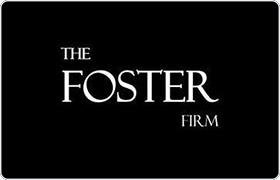Panama City Misdemeanor Lawyer, Florida
Sponsored Law Firm
-
 x
x

Click For More Info:
-
The Foster Firm
42 Business Centre Drive Suite 301 Miramar Beach, FL 32550» view mapCriminal Defense Law We Will Protect Your Rights!
Our law firm has been operating for more than 15 years and our team has numerous years of experience between them, to ensure you get the best legal advice possible.
800-940-3710
Not enough matches for Panama City Misdemeanor lawyer.
Below are all Panama City Criminal lawyers.
Ashley Stone Benedik
Ashley Stone Benedik is a Panama City native. She graduated from Mosley High School in 1986, Florida State University in 1989 and Louisiana State Univ... (more)
James Jerome Foster
✓ VERIFIED *Status is reviewed annually. For latest information visit hereFounded in 2001, we opened our practice to provide confident, knowledgeable representation and personal attention to our clients. Unlike larger Law Fi... (more)
Ricky D Dayaram
Ricky Dayaram began his career as an Assistant Public Defender in the First Judicial Circuit in Okaloosa County. As an Assistant Public Defender for t... (more)
James R. Dowgul
FREE CONSULTATION
CONTACTChristopher N. Patterson
Lisa Ann Anderson
FREE CONSULTATION
CONTACTPamela Dru Sutton
Stanley E Peacock
Jonathan Wesley Dingus
FREE CONSULTATION
CONTACT James J. Foster Miramar Beach, FL
James J. Foster Miramar Beach, FL Practice AreasExpertise
Practice AreasExpertise


